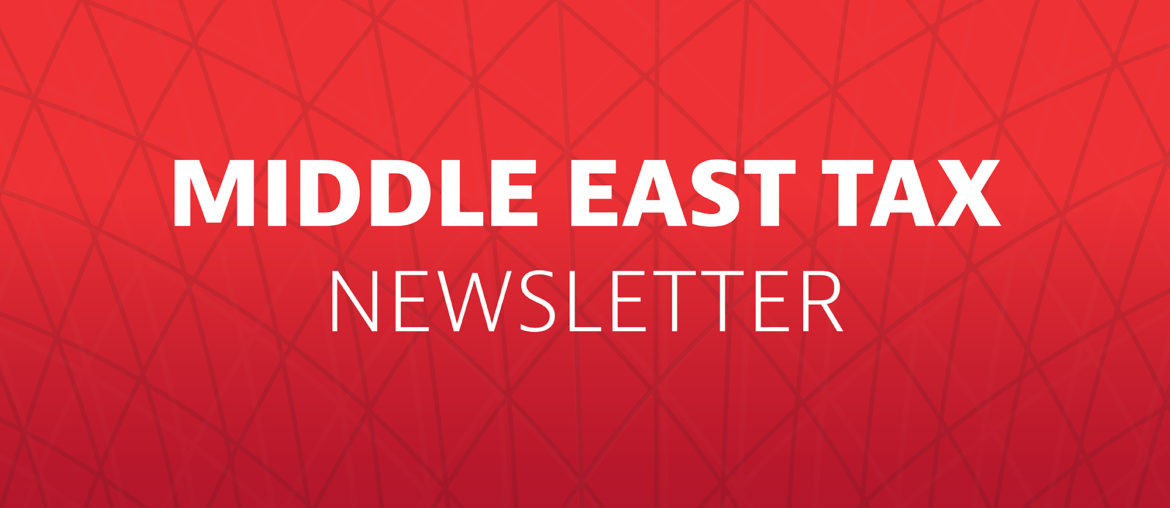This content has been archived. It may no longer be relevant
In brief
Our Middle East Tax Newsletter aims to provide you with regular updates, insights and practical guidance on the tax implications of doing business in the region.
In this issue, we provide a roundup of the current status of Value Added Tax (VAT) and the most recent tax related developments across the Gulf Cooperation Council (GCC), as well as their implications on the financial position of businesses.
Oman
VAT
On 12 October 2020, it was announced that Oman will introduce a VAT at a standard rate of 5%, which will come into effect 180 days after the publication of the Royal Decree No. 121/2020 in the Official Gazette No. 1362 of 18 October 2020 (on this basis VAT is expected to be introduced in April 2021).
Oman is the fourth GCC country to introduce VAT after Saudi Arabia (KSA) and the United Arab Emirates (UAE) introduced it in 2018 and Bahrain in 2019. The executive regulation is expected to be published soon.
Based on the FAQs published by the Oman Tax Authority, there will be an exemption for financial, healthcare, educational and local passenger transport services, among other things. The supply of medicines, medical equipment and certain food items will be subject to the zero rate of VAT. Businesses with operations in Oman should start considering how the introduction of VAT will impact their activities and their financial position.
Saudi Arabia (KSA)
VAT
As of 4 October 2020, certain real estate transactions in the KSA have been exempted from VAT. Transfer of ownership or the right to use/dispose (as owner) of residential, commercial and agricultural developed/undeveloped land, is now VAT exempt. The lease of commercial real estate remains subject to the standard rate of VAT, while the lease of residential real estate remains exempt from VAT. Businesses conducting supplies that are now exempt from VAT should consider how their VAT position will be affected by this change. Input tax incurred to make VAT exempt supplies is not recoverable.
Real Estate Transaction Tax
Further to the above, the KSA Government has levied a Real Estate Transaction Tax (RETT) of 5% on the value of real estate that is disposed of. It applies to any legal disposition alienating the ownership or possession of the property (with respect to its ownership or ownership of it usufruct). For this purpose, real estate properties include completed properties, properties under construction, or off-plan properties. There are a number of transactions that are exempt from RETT.
Tax Penalty Amnesty
The tax penalty amnesty, which applies to all taxes, has been extended until 31 December 2020. Visit the General Authority of Zakat and Tax (GAZT) website for more details.
United Arab Emirates (UAE)
Economic Substance
The UAE has made significant changes to its Economic Substance regime, with the UAE Cabinet of Ministers recently issuing Cabinet Resolution No. (57) of 2020 which repeals and replaces Cabinet Resolution No. (31) of 2019, as amended, and Cabinet Resolution No. (58) of 2019, which was published in June 2019. The Ministry of Finance also updated its Guidance via Ministerial Decision No. (100) of 2020.
Key changes under the revised regime include branches now being exempt from meeting the Economic Substance Test, if the income is taxed or the branch is a tax resident in another jurisdiction. Please note that all Licensees are required to re-submit the notification. Read our previous InsightPlus alert for more information.
To speak to us in relation to any VAT specific issues in the Middle East, please feel free to contact one of the lawyers above, or your usual Baker McKenzie contact.


